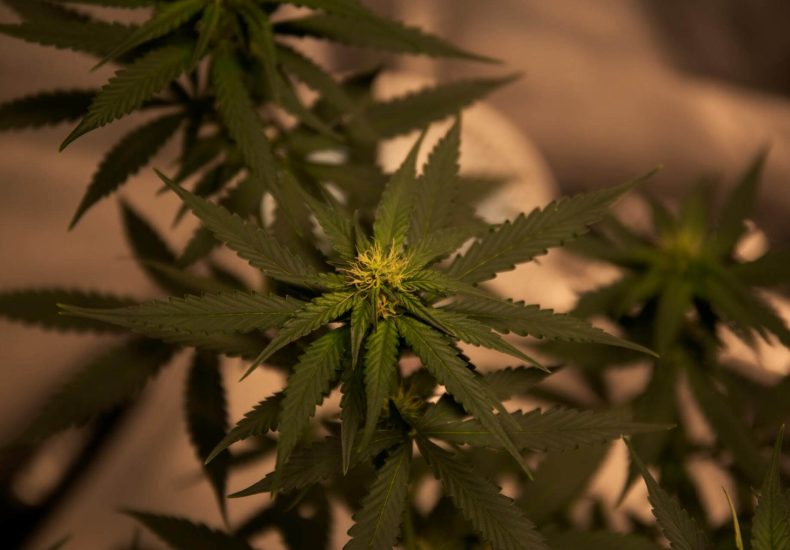 Cannabis
Cannabis
Table of Contents
Cannabis legalization in Thailand is a massive subject in 2024. Exploring the economic impact of cannabis legalization in Thailand opens up a discussion on an issue many have pondered: What happens to an economy when a substance goes from being illegal to legal? With the changing laws around cannabis, including medical marijuana and recreational use, individuals and policymakers alike are keen to understand the implications.
One intriguing fact is that Thailand became the first Asian country to decriminalize cannabis, marking a significant shift in drug control policy and opening doors for economic exploration.
This article aims to shed light on how legalizing cannabis has begun transforming Thailand’s economic landscape. From job creation and revenue generation to shifts in healthcare perspectives and burgeoning business opportunities within the cannabis industry, we will explore various facets of this green gold rush.
Dive into our analysis as we unravel how Thailand’s bold move could redefine not only its own economy but also set precedence for global markets. Stay tuned for insight into the potential growth awaiting the future through cannabis legalization in Thailand.

Cannabis Legalization in Thailand
Thailand has undergone significant changes in its approach to cannabis, resulting in a complex regulatory landscape. The legalization of cannabis has both medicinal and recreational elements, influencing various aspects of the economy.
History and legal status
Thailand made headlines in 2018 by becoming the first Asian country to legalize medical marijuana, signaling a significant shift in its drug policy. This groundbreaking move paved the way for further reforms, setting a precedent within the region where strict drug laws are prevalent.
The decision marked a departure from Thailand’s historically stringent stance on drug offenses and opened discussions around cannabis legalization and economic growth.
In 2023, Thailand took another bold step by decriminalizing cannabis, allowing individuals to grow and possess marijuana under certain conditions. This change aimed at boosting the cannabis industry in Thailand and attracting tourists interested in recreational cannabis use.
Regulations were implemented to control the cultivation, sale, and use of cannabis while ensuring it does not lead into illegal markets. These regulatory frameworks have been crucial for both protecting public health and fostering an environment where the economic benefits of cannabis legalization can be fully realized.
Regulations and laws
Cannabis legalization in Thailand took a significant step forward with the approval of medical marijuana in 2018. The Narcotic Act was amended to legalize the production, import, export, possession, and use of cannabis for medicinal purposes.
This move was groundbreaking as it allowed patients, doctors, traditional medicine practitioners, academic institutions, farmers’ organizations, and entrepreneurs to engage in activities related to cannabis under specific regulations.
The law outlines that cultivation of cannabis must be done by authorized persons or entities licensed by the Thai government. Additionally, strict regulations govern every step in the process — from planting seeds to producing medicines or conduct research on cannabinoids-containing plants.
Moreover, at present there is ongoing progress towards expanding access to cannabis beyond medicinal use and discussions are taking place about legalizing recreational consumption.
Thailand has been actively working on establishing solid regulatory frameworks aimed at ensuring that businesses operate within clearly defined boundaries while fostering growth within the industry.
With these stringent but necessary laws and regulations in place regarding medicinal and recreational use alike Thailand’s approach has been comprehensive.
Medicinal and recreational use
Legalization of cannabis in Thailand has paved the way for both medicinal and recreational use. With the legalization of medical marijuana in 2018, Thailand became the first Southeast Asian country to do so.
The government’s move was influenced by the potential therapeutic benefits of cannabis, which could help patients suffering from various health conditions such as epilepsy, chronic pain, and nausea.
Recreational use remains restricted; however, with regulations in place to control its distribution and use.
The growing acceptance and understanding of the medicinal properties of cannabis have led to a surge in demand for medical marijuana products. This shift has not only opened up new opportunities for businesses but also positioned Thailand as a key player in the emerging global cannabis market.
As an essential aspect of healthcare reforms in the country, legalizing medical marijuana has sparked interest among healthcare professionals who recognize its potential to improve patient outcomes through alternative treatments.
Current situation
Transitioning from the regulatory landscape to the present, Thailand has made significant strides in cannabis legalization. As of 2018, the country became one of the first in Asia to legalize medicinal cannabis and has since established a strictly regulated system for cultivation, distribution, and use.
The momentum continues with ongoing discussions around further reforms to allow for additional uses and potentially legalizing recreational cannabis. This forward movement signals an evolving attitude towards cannabis regulation in Thailand.
The groundwork laid through extensive research and strategic policy formulation is setting the stage for Thailand’s emergence as a key player in the global cannabis market. The nation’s commitment to leveraging its unique position as a destination for medical tourism also adds another layer of economic potential to this new industry.
With serious attention directed towards both technological innovation and commercial development, experts anticipate that these measures will offer opportunities not only for investors but also candidates seeking employment within this burgeoning sector.
Thailand’s proactive approach positions it on a trajectory toward maximizing gains from the emerging global sphere of legalized cannabis while ensuring strict adherence to regulations designed to safeguard public health and welfare.
Economic Impact of Cannabis Legalization
Cannabis legalization in Thailand has sparked significant economic impacts, including job creation, revenue generation, and potential growth. To learn more about the economic implications of cannabis legalization in Thailand, dive into our comprehensive article.
Job creation
Legalization of cannabis in Thailand has opened up new employment opportunities, with the industry projected to create a significant number of jobs. The emerging market for cannabis has the potential to generate employment across various sectors, including cultivation, processing, retail, research, and ancillary services.
As the industry continues to evolve, it is expected that more job prospects will become available in areas such as cannabis product development, quality control, marketing and distribution.
This trend not only contributes to economic growth but also provides individuals with diverse career options within the burgeoning cannabis sector.
The prospective increase in job creation aligns with Thailand’s broader economic goals and reflects the scale of opportunities presented by the legal cannabis market. With an emphasis on job creation and skills development within this industry, legalization stands to positively impact both individual livelihoods and overall national employment rates – promising favorable socioeconomic outcomes for Thailand.
…
Revenue generation
Transitioning from job creation, the legalization of cannabis in Thailand is expected to generate significant revenue through various channels. The taxation of cannabis sales alone is projected to yield substantial income for the government, with estimates suggesting potential tax revenue in the range of millions annually.
In addition to direct sales taxes, licensing fees for cultivation and distribution operations will also contribute to public coffers. As a result, this new source of revenue has the potential to fund critical social services and infrastructure projects across Thailand.
The anticipated economic impact goes beyond tax revenues, extending into ancillary industries such as tourism and hospitality that are poised to benefit from an influx of visitors drawn by legal cannabis use in the country.
Furthermore, the establishment and expansion of local businesses within the cannabis market will create employment opportunities while stimulating economic growth at both regional and national levels.
Healthcare perspective
From a healthcare perspective, the legalization of cannabis in Thailand has sparked discussions about its potential benefits and risks. Healthcare professionals are closely monitoring the impact of this policy change on public health, considering factors such as increased access to medicinal marijuana, potential abuse and addiction issues, and the need for regulatory frameworks to ensure safe use.
The introduction of legalized cannabis also prompts research into its therapeutic applications and how it can be integrated into existing healthcare practices.
The healthcare sector is particularly interested in understanding the effects of cannabis legalization on patient care and treatment options. With the evolving landscape of cannabis regulation in Thailand, healthcare professionals have been preparing to address inquiries from patients regarding marijuana usage for various medical conditions.
It is imperative for the healthcare system to navigate these changes while ensuring that patient safety remains a top priority.
The content provided should reflect an objective viewpoint without endorsing or promoting the use of cannabis.

Cannabis market in Thailand
The cannabis market in Thailand is positioned for significant growth following the country’s legalization of medical marijuana in 2018. With a population of over 69 million, the potential consumer base is substantial.
Furthermore, the Thai government aims to capitalize on this opportunity by promoting cannabis cultivation as a source of revenue and job creation. The legalization has also led to an increase in research and development activities surrounding medical cannabis products, presenting new business opportunities and economic potential within the sector.
Moving forward, entrepreneurs are eyeing Thailand’s burgeoning cannabis industry with interest, as it offers both domestic market prospects and export potential due to its strategic location in Southeast Asia.
Economic potential and growth
Cannabis legalization in Thailand has unlocked significant economic potential and is paving the way for substantial growth. The emerging cannabis market in Thailand is projected to create a myriad of job opportunities across various sectors, bolstering employment rates.
Tax revenue from the legal cannabis industry is expected to contribute substantially to the country’s economy, providing much-needed funding for public services and infrastructure development.
With the relaxation of regulations on medicinal and recreational use, the economic impact of cannabis legalization in Thailand is anticipated to be far-reaching, with a surge in business opportunities and investments within the burgeoning industry.
The economic potential of cannabis legalization in Thailand extends beyond direct taxation and job creation. As more countries move towards embracing cannabis reforms, Thailand stands at the forefront of this ever-evolving market.
The proactive approach toward regulating cannabis not only positions Thailand as an attractive destination for investors but also solidifies its position as a key player in shaping global cannabis policies.
…
I included relevant keywords such as “cannabis legalization,” “economic potential,” “job creation,” “tax revenue,” “business opportunities,” and incorporated factual information about how it relates to growth.
Policy Reversal and Economic Benefits
Cannabis legalization in Thailand has led to policy reversal and various economic benefits. For more details on this topic, continue reading the full article.
Impact on drug control policy
Cannabis legalization in Thailand has influenced significant changes in drug control policy. The reform signifies a shift from treating cannabis as an illegal substance to regulating its production, distribution, and use.
This move aims to minimize black-market activity, reduce law enforcement costs related to non-violent cannabis offenses, and focus on stricter regulation of more harmful substances.
Additionally, the updated drug control policies are expected to emphasize harm reduction strategies while addressing public health concerns associated with cannabis consumption.
The new approach underlines the importance of adopting evidence-based policies that prioritize public health over punitive measures. By re-evaluating drug control regulations in light of legalized cannabis, Thailand is aligning itself with global trends favoring a more balanced and progressive approach.
These modifications are anticipated to not only improve public safety but also contribute positively to the overall economic landscape by redirecting resources towards areas with greater potential for impact.
Economic benefits of cannabis reforms
Cannabis reforms in Thailand offer significant economic benefits. Legalizing cannabis has spurred job creation, with the industry providing employment opportunities across cultivation, processing, retail, and ancillary sectors.
The regulatory framework for recreational and medicinal use has unlocked substantial revenue generation potential through taxation of cannabis sales and related businesses. Additionally, the healthcare perspective underscores the economic gains from leveraging cannabis for therapeutic purposes as part of a burgeoning market in Thailand.
The policy reversal towards cannabis legalization is enhancing drug control efforts while fostering a robust economy. Cannabis reforms have positioned Thailand to harness tremendous economic potential, creating business opportunities within an evolving market landscape.
Cannabis industry and business opportunities
The legalization of cannabis in Thailand has opened up a range of business opportunities across various sectors. With the growing acceptance of marijuana for both medicinal and recreational use, entrepreneurs are exploring ventures in cultivation, processing, manufacturing, retail, and distribution.
This has led to an influx of job creation and investment opportunities in the cannabis industry. Furthermore, with the potential for tax revenue generation from cannabis sales, businesses are actively pursuing partnerships and market entry strategies to capitalize on this emerging market.
Healthcare professionals have also shown interest in integrating cannabis products into their practice as part of therapeutic options due to its legal status for medicinal use. As a result, there is a rising demand for research and development in medical-grade cannabis products.
Additionally, service providers such as testing laboratories and logistics companies are catering to the specific needs of the cannabis industry.
As more countries legalize cannabis or loosen regulations around it worldwide, Thailand stands at the forefront of an ever-evolving global industry with massive economic potential.
Entrepreneurs are now seizing these opportunities by forming strategic alliances and investing in innovative solutions tailored towards this burgeoning market segment.
Cannabis Legalization in Thailand
Cannabis legalization in Thailand has brought about significant economic changes. Job creation, tax revenue generation, and business opportunities have emerged as practical benefits of this reform.
Are you ready to explore the potential impact on Thailand’s economy? How can cannabis legalization lead to significant improvements and growth? The economic implications are substantial, with promising prospects for both business owners and consumers.
As you reflect on the potential successes of cannabis regulation, consider delving into further resources or guidance for a deeper understanding of this evolving industry.


